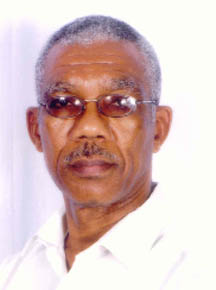With a number of bills and motions in the pipeline, the opposition parties have been meeting to outline their positions and priorities, but there is no common legislative agenda though they are unified in aiming for higher standards of governance.
The dialogue is ongoing but there are also concerns that President Donald Ramotar will veto the bills passed without the support of the PPP as he has said previously. With the combined opposition holding a one-seat majority in the National Assembly and the government bullish in saying that bills that do not have its support will not be signed into law, there have been increasing concerns that gridlock could be the result.
The combined opposition has faced criticism for not bringing more legislation in the first session of the 10th Parliament and questioned yesterday on whether there is a common legislative agenda for this new session, APNU’s leader, David Granger said no, but they are meeting. “We are aware of each other’s interest and position,” he said. “We have not adopted a common agenda but we have met and put separate positions on the table for discussion.”

The idea, he said, is not to have a common agenda but to let each be aware of the other’s priorities. “There is no conflict but it is a matter of how we move forward,” he said adding that they both want certain things such as higher standards of governance.
Noting that the AFC will be bringing several bills and motions, the party’s leader Khemraj Ramjattan told Stabroek News that the AFC will share these with all the parties and have discussions so that agreement can be reached, particularly in light of the president’s position on opposition-crafted bills. “We are not going to be taking a straitjacketed position…we will not be inflexible,” he said.
The AFC leader said that the party is open to compromise, and for example, if a party has concerns about certain provisions contained in a Bill, it can be sent to a select committee where the issues can be sorted out. “We can concede,” he said, “so that we could at least have half the cake. Half the cake is better than none.” Ramjattan noted that this had been the AFC’s position in the past and noted its support of the Broadcast Act. However, he added that the party also has to ensure that the core provisions of a bill remain intact.
While the AFC has met APNU to discuss some issues, Ramjattan emphasized that all the legislation proposed and drafted by the party will be shared with both sides. “As we complete our bills, we will then share it with the opposition and government,” he stressed.





